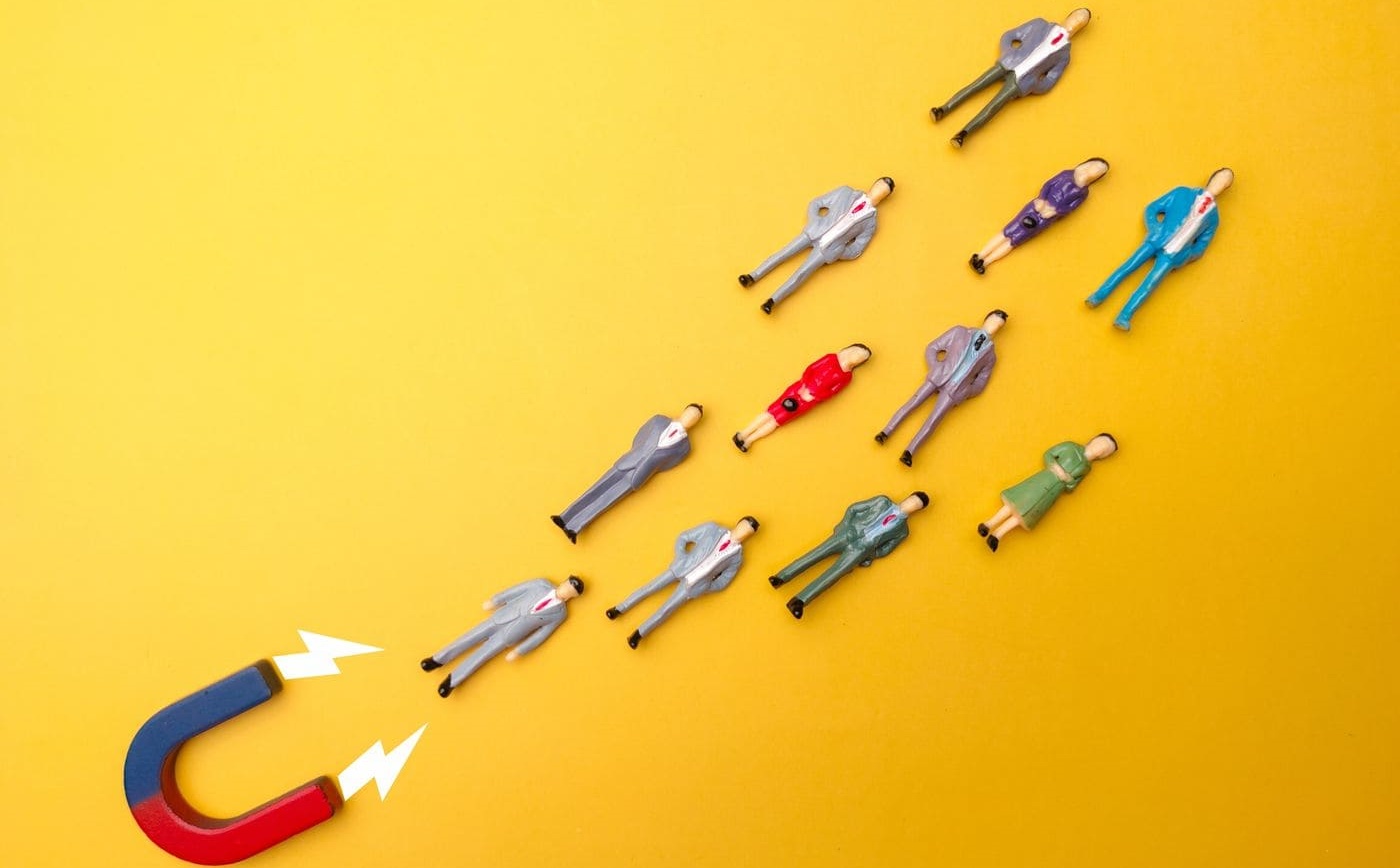What is Emotional Loyalty and Why Your Business Needs It
- Published
- 7 min reading

Unless you are a pioneer in a particular industry, you have many competitors who provide similar products and services in a similar price range to the same group of customers. So, how can you achieve competitive advantage? The answer is to build customer loyalty. In this article, you will learn what are the types of customer loyalty, how are they built and which of them matters the most. As you have probably already noticed, the one we are aiming at today is emotional loyalty!
What are the main types of customer loyalty?
We can differentiate at least four types of customer loyalty. They refer to various customers’ needs and stem from diverse factors, both rational and emotional. These include:
- Transactional loyalty – this type of loyalty is based on the rational decision-making process. The customer is looking for the best quality products or services at the lowest price possible. This type of loyalty can be achieved, e.g. by offering discounts. This type of loyalty most often concerns buying products that we use every day, such as gas and oil.
- Behavioral loyalty – is a result of a habit. Some actions, such as visiting particular stores or websites, are more convenient for customers than using other services within the same industry. The most important factor for a customer is not needing to take an extra action. That is why it is associated mainly with grocery and convenient stores, which are often located nearby the usual customers’ route.
- Experiential loyalty – applies mainly to the tourism and travel industry, for example hotels and airlines. This type of loyalty helps in creating a customer connection with a brand by using merchandising and personalized gifts, which make customers feel unique and special.
- Emotional loyalty – comes from a strong attachment to a given brand. The customer buys a product because it promises something spiritual for them, e.g. the product allows consumer to achieve some sort of fulfillment. This one refers mainly to the luxury and premium brands.
What is emotional loyalty?
Emotional loyalty is the type of loyalty that is achieved by creating a strong emotional attachment to the company and its products. It changes the way that clients perceive the brand – instead of being a provider of goods or services, it becomes a trustworthy partner.
This type of loyalty is so significant, because, in some cases, emotions are the most important factor that takes part in creating buying motivations. While the rational consumer wants a good price, convenience and quality, the emotional consumer desires attachment and deep, meaningful relationship, which increase the perceived value of a product.
Why is emotional loyalty important
According to the report published by Capgemini, vast majority of loyalty programs generate no revenue. The main reason why such programs aren’t successful is the fact that 90% of consumers have a negative approach towards them. Additionally, after a short time, more than half (54%) of the programs stop generating any response.
Above numbers clearly show that, from consumers perspective, creating a loyalty campaign is just not enough, if you do not introduce a proper narration and not focus on the emotional aspect. That is why brands should concentrate on building an emotional loyalty, which will result in being perceived not as a provider of certain goods or services, but as a friend.
There are a few main reasons why creating customer connection to the brand is important. From the business’ perspective, creating emotional loyalty is the key factor to building long lasting relationship. Similarly to everyday life, meaningful relations in business make even mundane daily activities significantly more special. How can it help your company grow?
- Competitive advantage – there are plenty of companies and brands in every industry, which offer similar goods and services. Consumers are more likely to choose the ones they trust and can relate to and they share the same values with. The last factor is crucial especially for younger generations, such as Gen Z, who value being authentic in every aspect of their life.
- Positive word-of-mouth – satisfied customers, who are attached to the brand, can give you a significant exposition, what leads to increasing brand awareness. These can be enhanced by utilizing referral programs, which encourage current customers to recommend your products or services to their friends and family members. That’s how you make the transition from a loyal client to the brand’s advocate.
- Higher customer lifetime value (CLV) – the analysis by Harvard Business Review indicates that loyal and engaged customers spend on average twice as much money as those who are simply satisfied with the purchase. In the group in which the analysis was carried out, engaged customers accounted for 22% of the population and were responsible for as much as 37% of the company's profits.

How to build emotional customer loyalty
Building emotional loyalty is a time consuming and complexed process, which requires a good strategy with a bold attitude. To build relationships with customers, you need to have a straightforward and engaging narration. Its purpose is to establish a relationship with the customer in which brand is perceived as a friend, not a seller.
What actions will help you in achieving emotional loyalty among customers?
1. Personalized experiences & exceptional customer service
Creating a unique experience for customers makes them feel valued and appreciated. Such actions also make relations seem more friendly and informal than business-related. One of the best ways to improve the customer experience is to use marketing automation tools. This will provide customers with personalized messages and notifications.
It will also make the brand seem more approachable. It is worth remembering that for a customer who wants to solve his problem, communication with the company is extremely important. The lack of an automated system increases the risk of missing e-mails from customers, which would directly cause weakening of relationship and could lead to a loss of trust.
2. Emotional branding
Emotional branding is the development of such a brand image that not only evokes positive associations, but also responds to the emotional needs of customers. These aren’t necessary related to the characteristics of the products themselves, such as low price and reliability. In this context, the product is rather a tool that will help the customer meet other, unspoken needs, which include:
- Self-fulfillment and satisfaction.
- Willingness to become a better person.
- Desire to feel a sense of belonging to a given group.
- Wishing of having a positive influence on the direct environment.
- Hope for a safe and peaceful future.
3. Utilizing user-generated content
It is a great way to provide your brand with additional advertising and build a customer connection with a brand. Not only does it allow you to achieve increased organic reach in social media, but it also leads to improving relationships and emotional loyalty among customers who put effort into creating the highest quality content.
This type of content is a great advertisement because:
- It comes from trusted users.
- It builds an emotional relationship with customers who feel appreciated.
- It shows the real effects of using the service and creates a social proof.
4. Gamification
Introducing game-like elements and functionalities allows to engage users, which will lead to increase their interest in the brand. This is done through various customized plugins that will appear in many different points in the app, so you can have an impact on user experience you provide to your customer.
A marketing tool that allows you to holistically take care of this process and adjust it to the needs of your business is Comarch Gamification. It also allows you to introduce leaderboards and badges, which translate into even better user engagement
5. Continuous improvement
Market research provides a lot of valuable information, but it is expensive and time-consuming. Building a relationship with the customer will allow you to get first-hand product reviews. What's more, building customer loyalty and using their feedback feed each other. Customers whose feedback is taken into account will feel appreciated, which will further increase their engagement.
In addition to developing your products, you can also improve your marketing efforts to make them even more relevant. Their effectiveness is measured on the basis of specific data, such as interactions with given emails, number of clicks, etc. Analyzing such figures and drawing conclusions will allow you to create a better marketing strategy and content, thanks to which the customers will be more willing to engage in the relationship with the brand.
How Comarch can help
Building customer emotional loyalty is a complex process that requires a lot of work. One of the best solutions to effectively create emotional loyalty of your customers is using a proven loyalty program platform. Comarch provides many tools that can automate this process and make it bring better results.
Comarch loyalty program management will help you with:
- Managing multi-channel loyalty marketing strategy
- Collecting and utilizing gathered data
- Creating personalized promotions and offers
- Rewarding your customers
- Incorporating gamification into your marketing
Ask for a free demo of Comarch Loyalty Program Management tool and conquer the hearts of your customers!


